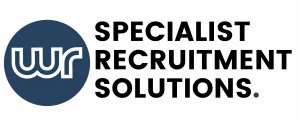How will the gas boiler ban affect access to talent in HVACR?
In HVACR, skills shortages are a common topic of debate. In recent years, organisations have had increasing difficulty sourcing talent, with a study from The Open University stating that 91% of UK organisations have
struggled to find workers in the last 12 months.
One factor that may cause additional impact to the sector is the raft of legislation being introduced by the UK government to tackle climate change. In order to address rising CO2 levels, many laws have been created to cut carbon emissions. As an industry
that plays such a vital role in reducing the UK carbon footprint, any change will undoubtedly affect HVACR.
One development that we recently covered was the FGas ban, which will force manufacturers of refrigeration and AC systems to ensure they no longer use potentially harmful refrigerants. This week, we’ll focus on the upcoming gas boiler ban in new homes from 2025. Here’s what you need to know about how it could affect access to talent.
Access to talent: What is the gas boiler ban?
In March 2019, Phillip Hammond announced new standards as part of the UK’s growing movement towards sustainability. As well as cutting carbon emissions and supporting energy conservation for small businesses, it was also announced that fossil-fuel
heating systems will no longer be installed in new homes after 2025.
Under the ban as part of the Future Homes Standard, conventional gas or oil fired heating systems will no longer be fitted in new builds from 2025, which will require developments to be future proofed with low-carbon heating and world leading levels of energy
efficiency.
In addition to this, there are plans in place to phase out high-carbon fossil fuel heating in existing buildings as the UK works to achieve an overall target of zero greenhouse gas emissions by 2050.
Rising demand
When it comes to access to talent, the main challenge that the gas boiler ban will present is a boom in demand for specialist workers to meet new regulations. According to the latest Global Energy Talent Index (GETI) report, 48% of power professionals
are already concerned about an impending ‘talent emergency’, while 32% believe the crisis has already hit the sector. Almost one third (28%) report that their company has been affected by a skills shortage.
Heat pump specialists
According to our own company data, one area that has already seen demand rise is for heat pump specialists and other renewable energy professionals. With 2.5 million new heat pumps set to be installed in new homes by 2030, it is perhaps unsurprising that there is such a rise in demand for specialists to sell, install and maintain ground source and air source heat pumps.
A complicated picture
While the gas boiler ban could potentially have a huge impact on access to talent, this is far from the only factor influencing skills shortages in HVACR sector. With an ageing workforce and a lack of interest from young professionals in pursuing a career in the
sector – it’s important that businesses adopt smart talent strategies in order to cope with challenges.
At WR HVACR, we have unfettered access to highly qualified HVACR talent pools that can help your organisation keep up with any regulation changes, talent shortages, and any challenge that the industry may throw at you.
Contact us today and we’ll connect you with one of our specialist HVACR consultants. We’ll take time to understand your challenges and goals, and
give you access to the best talent possible.
Call us today on 0330 333 5074


